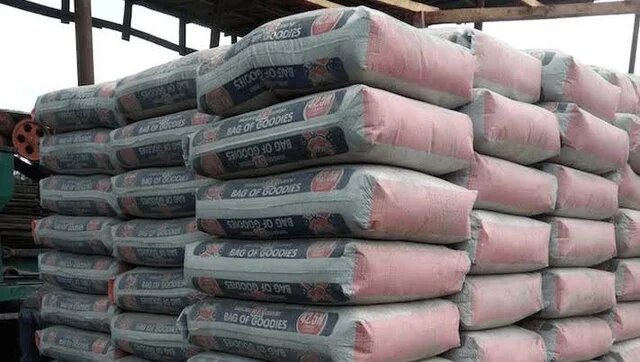Current price of different cements in Nigeria

Cement prices in Nigeria have remained volatile due to a combination of local and global economic pressures, infrastructural challenges, government policies, and market-specific dynamics. This price unpredictability affects key sectors like construction and real estate, where stable cement prices are critical to project planning and execution.
Cement production in Nigeria is capital- and energy-intensive, with significant costs associated with raw materials and energy: Nigeria’s cement industry is dominated by a few major players: Dangote Cement, BUA Cement, and Lafarge. This oligopoly structure reduces competitive pricing:
Poor infrastructure and security issues increase transportation costs: The naira’s fluctuating value against foreign currencies impacts the cost of imported machinery, spare parts, and raw materials. These costs are often offset by frequent adjustments in cement prices.
High demand driven by urbanization, population growth, and government infrastructure projects often outstrips domestic supply: Cement manufacturers face significant taxes and levies, which are typically transferred to consumers through increased prices.
Speculative practices further destabilize prices: Nigeria’s infrastructure issues exacerbate supply chain inefficiencies: External events like the COVID-19 pandemic and the Russia-Ukraine war have disrupted supply chains and increased the cost of key production inputs like gypsum and coal, amplifying local price instability.
Security concerns, particularly in mining regions, affect raw material availability and increase risks along distribution routes, inflating overall costs. Cement Type Price (₦ per 50kg bag) Dangote Cement ₦9,400 (varies by location) BUA Cement ₦7,700 POP (Plaster of Paris) Cement ₦9,700 Lafarge Waterproof Cement ₦8,900 Water Shield High-Quality Cement ₦12,000 A multi-pronged approach is essential to stabilize cement prices and ensure sustainable growth in Nigeria’s construction and real estate sectors:
Improve Infrastructure : Upgrading roads, ports, and storage facilities will reduce transportation and logistical costs. Foster Competition : Encourage new entrants by reducing capital barriers and revisiting import restrictions to increase supply options. Stabilize Exchange Rates : Strengthening the naira through sound fiscal policies will lower the cost of imported inputs. Enhance Energy Supply : Investing in reliable electricity infrastructure will reduce reliance on expensive generators. Regulate Taxes and Levies : Introducing tax reliefs for cement manufacturers can reduce production costs and lower market prices. Without these interventions, cement prices in Nigeria are likely to remain unstable, posing significant challenges to the nation’s development agenda.